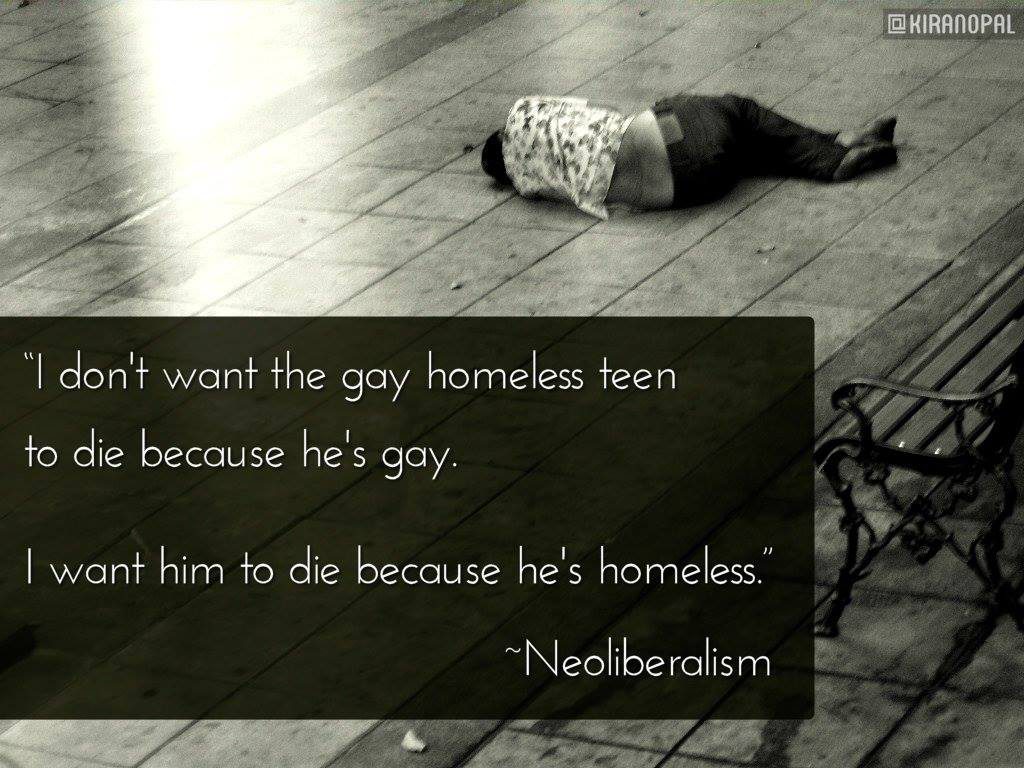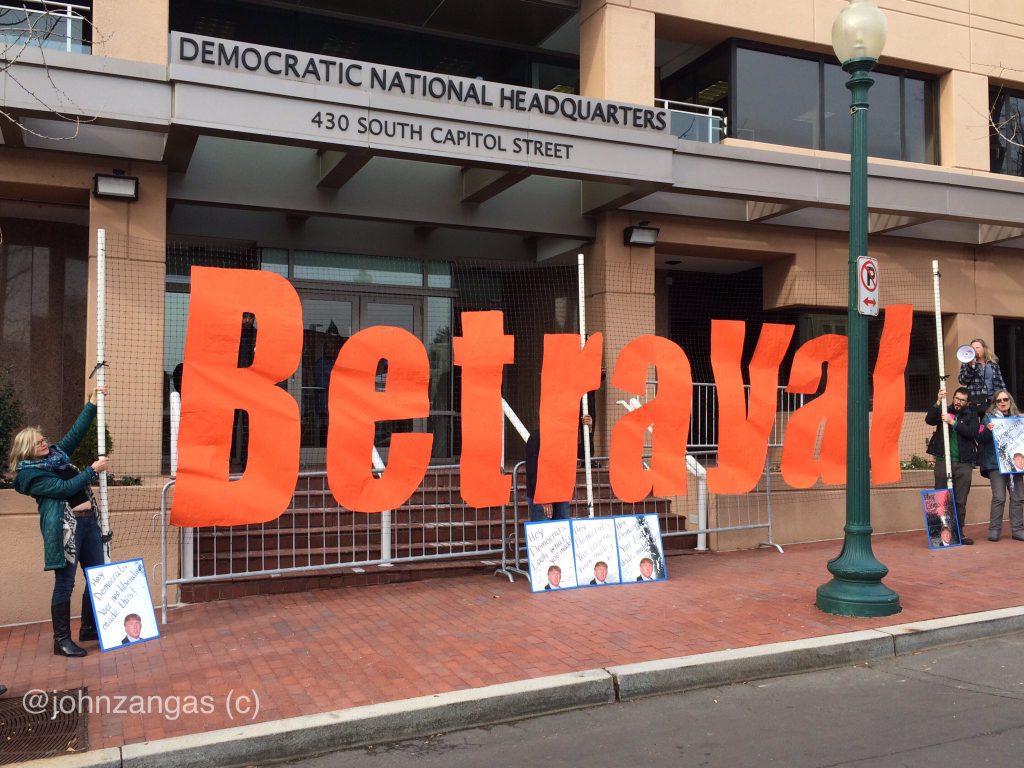A lot of people are talking about “Neoliberalism” and I think many wonder: what does it actually mean?
Well, there are two ways of looking at it, and they both depend on breaking the word up into its two components: “Neo” (new) and “Liberalism”. I think the confusion comes about because Liberalism itself can have 2 meanings:
1) In our modern American social and political context, “liberal” means someone who is thought to be on the Left, and the term “liberalism” is often used interchangeably (and incorrectly) to mean “progressivism” or even “socialism.”
2) In the classic economics definition, liberalism means laissez-faire capitalism in which as many economic decisions as possible are left up to the individual, and businesses are allowed to do as they please. The economy will function because individuals will make rational decisions based on their own enlightened self-interest and a driving axiom to maximise their own wealth. The “magic” of the free market is sacrosanct. Classical liberals, for example, are against any form of regulation on business or trade.
Consequently, “Neoliberalism” can have two meanings, each based on one of the two interpretations above.
In the first case, “Neoliberalism” means a new sort of social liberalism in which social justice is pursued as a priority, but is accompanied by a pro-business agenda of laissez-faire capitalism.
In the second case, a classical “liberal” pro-business agenda of laissez-faire capitalism is “tempered” with a political agenda that elevates social justice as a means to “balance out” the harshness and economic inequality that such a classical liberal agenda can create.
IN EITHER CASE, “Neoliberalism” as it has been practised for the last 40 years is a political philosophy that is (1) pro-business, pro-trade and in which the free market is held as an immutable force of nature and the font of all good things, but which (2) adopts a perceived “Leftist” attitude in terms of social justice, Equal Rights, etc. The modern Neoliberals know that such “liberal” stances can serve to fire up a leftist base while – even more importantly – distract those parts of the population that are “economic losers” who would normally seek out a “Leftist” political party to represent them.
 The problem, of course, is that when the Party of the “Economic Left” (i.e., the Democrats in the USA and Labour in the UK) adopts a Neoliberal philosophy, the truth will eventually come out. The workers, poor and middle class who traditionally sought representation through those Parties of the Left will eventually realise that they have now become the losers under that Party’s economic policies.
The problem, of course, is that when the Party of the “Economic Left” (i.e., the Democrats in the USA and Labour in the UK) adopts a Neoliberal philosophy, the truth will eventually come out. The workers, poor and middle class who traditionally sought representation through those Parties of the Left will eventually realise that they have now become the losers under that Party’s economic policies.
Under a Neoliberal regime, these economic groups have nowhere else to go. BOTH of the main political parties have now become pro-business and anti-worker, anti-union, pro-trade, etc. The poor, the working class and even the middle class become desperate and feel abandoned by the political Establishment, because they no longer have any voice in that Establishment. They have been betrayed by the Party that they have relied on for so long.
And that’s when you get Trump.

EuroYankee is a dual citizen, US-EU. He travels around Europe, writing on politics, culture and such. He pays his US taxes so he gets to weigh in on what is happening in the States.

